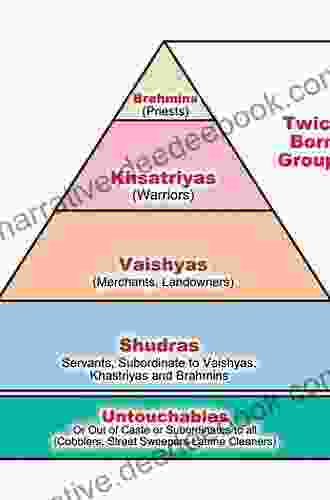The Social and Political Origins of Economic Policy in India: A Comprehensive Exploration

India's economic policies have been shaped by a complex interplay of social and political factors, reflecting the country's unique historical, cultural, and institutional contexts. This article delves into the historical evolution of India's economic policies, examining the key social and political influences that have shaped its economic trajectory, from its colonial legacy to the present day.
5 out of 5
| Language | : | English |
| File size | : | 5440 KB |
| Text-to-Speech | : | Enabled |
| Screen Reader | : | Supported |
| Enhanced typesetting | : | Enabled |
| Word Wise | : | Enabled |
| Print length | : | 303 pages |
Colonial Legacy and Economic Policy
The British colonial period (1757-1947) had a profound impact on India's economic development and laid the foundation for many of the social and political factors that would later influence economic policy. British policies were primarily geared towards extracting wealth and resources from India, resulting in the development of cash crops, such as jute and cotton, for export to Britain. This led to the neglect of other sectors, such as manufacturing and agriculture, which would have a lasting impact on India's economic development.
Independence and Economic Planning
After India's independence in 1947, a new era of economic policymaking began. The newly independent Indian state embarked on a path of economic planning, with a focus on import substitution industrialization (ISI). ISI sought to promote domestic industry by protecting it from foreign competition and providing incentives for investment. This policy was largely successful in promoting economic growth and laid the foundation for India's emergence as a major industrial power.
Social and Political Context of Economic Planning
The social and political context in which ISI was implemented was complex. India was a newly independent nation with a vast population and a deep-rooted caste system that reinforced social and economic inequalities. The Congress Party, which dominated Indian politics for much of the post-independence period, was committed to social justice and economic redistribution. However, its policies often faced resistance from vested interests and were constrained by limited resources.
Liberalization and Globalization
The 1990s marked a significant shift in India's economic policies, with the adoption of liberalization and globalization. These policies were driven by a desire to stimulate economic growth and reduce government intervention in the economy. The liberalization of trade, investment, and financial markets led to a period of rapid economic growth and increased foreign investment. However, these policies also exacerbated social and economic inequalities and led to a rise in poverty and unemployment.
Neoliberalism and Social Justice
The impact of neoliberal policies on social justice has been a major source of debate in India. While some argue that liberalization has promoted economic growth and reduced poverty, others point to the widening gap between rich and poor and the erosion of labor rights as a major concern. The government's efforts to address these issues have been constrained by the need to maintain fiscal discipline and by the influence of powerful interest groups.
Electoral Politics and Economic Policy
Electoral politics has played a significant role in shaping India's economic policies. The need to cater to the demands of different constituencies has often led to populist policies that may not be economically sound or sustainable in the long run. This has been particularly true in the case of subsidies, which have been a major drain on government resources.
Development Strategies and Social Change
India's development strategies have been influenced by a range of social and political factors. The emphasis on rural development, for example, has been driven by the need to address poverty and inequality in rural areas. However, the success of these strategies has often been limited by political corruption and bureaucratic inefficiency.
The social and political origins of economic policy in India are complex and multifaceted. The legacy of colonialism, the influence of electoral politics, and the need to address social and economic inequalities have all played a significant role in shaping the country's economic trajectory. As India continues to grow and develop, it will be important to consider the social and political implications of economic policy and to strike a balance between economic growth, social justice, and environmental sustainability.
5 out of 5
| Language | : | English |
| File size | : | 5440 KB |
| Text-to-Speech | : | Enabled |
| Screen Reader | : | Supported |
| Enhanced typesetting | : | Enabled |
| Word Wise | : | Enabled |
| Print length | : | 303 pages |
Do you want to contribute by writing guest posts on this blog?
Please contact us and send us a resume of previous articles that you have written.
 Page
Page Chapter
Chapter Story
Story Reader
Reader Library
Library E-book
E-book Newspaper
Newspaper Paragraph
Paragraph Sentence
Sentence Bookmark
Bookmark Shelf
Shelf Glossary
Glossary Bibliography
Bibliography Preface
Preface Synopsis
Synopsis Scroll
Scroll Codex
Codex Tome
Tome Bestseller
Bestseller Classics
Classics Library card
Library card Biography
Biography Memoir
Memoir Narrator
Narrator Character
Character Resolution
Resolution Catalog
Catalog Borrowing
Borrowing Research
Research Journals
Journals Rare Books
Rare Books Special Collections
Special Collections Interlibrary
Interlibrary Literacy
Literacy Study Group
Study Group Dissertation
Dissertation Storytelling
Storytelling Awards
Awards Book Club
Book Club Theory
Theory Mario Ezcurdia Camacho
Mario Ezcurdia Camacho Ray Breed
Ray Breed Andy Southall
Andy Southall Alana Udwin
Alana Udwin Nina De Gramont
Nina De Gramont Garry Potter
Garry Potter Lissa Alexander
Lissa Alexander Tracy Sulkin
Tracy Sulkin Michael Heatley
Michael Heatley E Wayne Ross
E Wayne Ross August Nemo
August Nemo Steven A Cook
Steven A Cook Emily Bunney
Emily Bunney Justin Gregg
Justin Gregg Priscilla Costello
Priscilla Costello Suresh Antonio
Suresh Antonio Christophe Giraud
Christophe Giraud Jordan Taylor
Jordan Taylor Peter C Hansen
Peter C Hansen Michael Heney
Michael Heney
Light bulbAdvertise smarter! Our strategic ad space ensures maximum exposure. Reserve your spot today!

 Danny SimmonsA Comprehensive Guide to Old-Fashioned Doilies: Crochet Patterns, History,...
Danny SimmonsA Comprehensive Guide to Old-Fashioned Doilies: Crochet Patterns, History,...
 Morris CarterCuban Americans and the Miami Media: A Historic Partnership Shaping Identity...
Morris CarterCuban Americans and the Miami Media: A Historic Partnership Shaping Identity... F. Scott FitzgeraldFollow ·16.6k
F. Scott FitzgeraldFollow ·16.6k Vernon BlairFollow ·11k
Vernon BlairFollow ·11k Harry HayesFollow ·8.2k
Harry HayesFollow ·8.2k Daniel KnightFollow ·15.6k
Daniel KnightFollow ·15.6k Ken SimmonsFollow ·8.9k
Ken SimmonsFollow ·8.9k Ignacio HayesFollow ·11.4k
Ignacio HayesFollow ·11.4k Matthew WardFollow ·12.5k
Matthew WardFollow ·12.5k Junot DíazFollow ·12.4k
Junot DíazFollow ·12.4k

 Dallas Turner
Dallas TurnerParasols and Peril: Adventures in Grace
In the quaint town...

 Caleb Carter
Caleb CarterFlight Attendant Joe: A Dedicated Professional in the...
Flight Attendant Joe...

 Jerry Ward
Jerry WardPick Lottery The List For 23 States August 15 2024
The Pick Lottery is a multi-state lottery...

 Hudson Hayes
Hudson HayesHow the Media Wields Dangerous Words to Divide a Nation
In a world where the media is...

 Curtis Stewart
Curtis StewartThe Magic Mala: A Story That Changes Lives
In the realm of ancient traditions and...

 Raymond Parker
Raymond ParkerEarthly Meditations: A Poetic Tapestry of Nature,...
In the realm of contemporary...
5 out of 5
| Language | : | English |
| File size | : | 5440 KB |
| Text-to-Speech | : | Enabled |
| Screen Reader | : | Supported |
| Enhanced typesetting | : | Enabled |
| Word Wise | : | Enabled |
| Print length | : | 303 pages |








